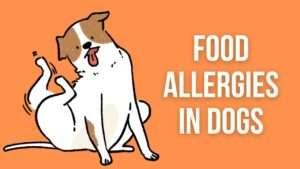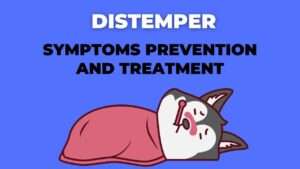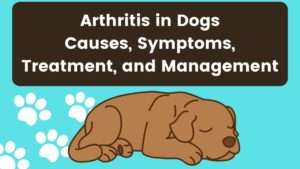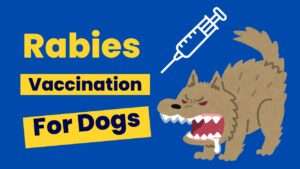As a responsible pet owner, one of the most important steps you can take to ensure the health and well-being of your canine companion is to stay up-to-date on vaccinations.
Vaccinations play a crucial role in preventing deadly diseases and safeguarding your dog’s health.
In this comprehensive guide, we’ll delve into the world of canine vaccinations, exploring the different types of vaccines, their importance, and the vaccination schedule for puppies and adult dogs.
Contents Overview
Why Vaccinate Your Dog?
Vaccinations are essential for preventing contagious and potentially life-threatening diseases that can affect dogs of all ages, breeds, and lifestyles.
Some of the most common diseases vaccinated against include:
- Rabies: Rabies is a fatal viral infection that affects the central nervous system and can be transmitted to humans through bites.
- Distemper: Distemper is a highly contagious viral disease that affects multiple organ systems, leading to respiratory, gastrointestinal, and neurological symptoms.
- Parvovirus: Parvovirus highly contagious viral infection that causes severe vomiting, diarrhea, and dehydration, often leading to death, especially in puppies.
- Canine Adenovirus: Canine Adenovirus causes respiratory and gastrointestinal symptoms, including coughing, fever, and liver disease.
- Canine Parainfluenza: Canine Parainfluenza is a viral respiratory infection that contributes to kennel cough and other respiratory diseases.
Types of Canine Vaccines
Core Vaccines
Essential vaccines are recommended for all dogs, regardless of lifestyle or risk factors. Core vaccines protect against diseases with high morbidity and mortality rates, such as rabies, distemper, parvovirus, and adenovirus.
Non-Core Vaccines
Optional vaccines are recommended based on a dog’s lifestyle, geographic location, and risk factors. Non-core vaccines protect against diseases such as leptospirosis, Bordetella (kennel cough), Lyme disease, and canine influenza.
Vaccination Schedule for Puppies
Puppies receive maternal antibodies from their mother’s milk during the first few weeks of life, providing temporary immunity to certain diseases.
However, this immunity wanes over time, leaving puppies susceptible to infections. The vaccination schedule for puppies typically follows this timeline:
- 6-8 Weeks: Initial vaccination series begins, including the first core vaccines (e.g., distemper, parvovirus).
- 10-12 Weeks: Second round of core vaccinations and initial non-core vaccinations (e.g., Bordetella, leptospirosis).
- 14-16 Weeks: Final core vaccinations and completion of non-core vaccinations.
- 16-18 Weeks: Rabies vaccination, administered separately from other vaccines.
- 12-16 Months: Booster vaccinations to reinforce immunity.
Vaccination Schedule for Adult Dogs
Adult dogs require regular booster vaccinations to maintain immunity against infectious diseases.
The frequency of booster vaccinations varies depending on factors such as the dog’s lifestyle, risk of exposure, and vaccine type.
Generally, booster vaccinations are recommended every 1 to 3 years for core vaccines and annually for some non-core vaccines.
Key Considerations
1- Consult with Your Veterinarian
Work closely with your veterinarian to develop a customized vaccination schedule based on your dog’s individual needs, lifestyle, and risk factors.
2- Adverse Reactions
While rare, some dogs may experience mild reactions to vaccinations, such as lethargy, swelling at the injection site, or fever. Contact your veterinarian if you notice any unusual symptoms after vaccination.
3- Travel Requirements
If you plan to travel with your dog, be aware of any vaccination requirements or recommendations for the destination, particularly for rabies and other diseases endemic to certain regions.
4- Lifestyle Factors
Consider your dog’s lifestyle when deciding on non-core vaccinations. For example, dogs that frequent boarding facilities, dog parks, or areas with high tick populations may benefit from additional vaccinations.
5- Stay Informed
Keep up-to-date on emerging infectious diseases, vaccine recommendations, and advancements in veterinary medicine by consulting reputable sources and staying in touch with your veterinarian.
Bottom Line
Vaccinations are a cornerstone of preventive healthcare for dogs, providing essential protection against a variety of infectious diseases.
By following a tailored vaccination schedule and working closely with your veterinarian, you can help ensure your dog’s health and longevity.
Remember, vaccination is a simple yet powerful way to keep your canine companion safe and healthy for years to come. So, don’t wait—schedule your pup’s vaccinations today!

Ryan Farmer, DVM, is a veterinarian based in Houston, Texas. He earned his Doctor of Veterinary Medicine from the University of Missouri-Columbia and is the owner of EaDo Veterinary Clinic.



































+ There are no comments
Add yours